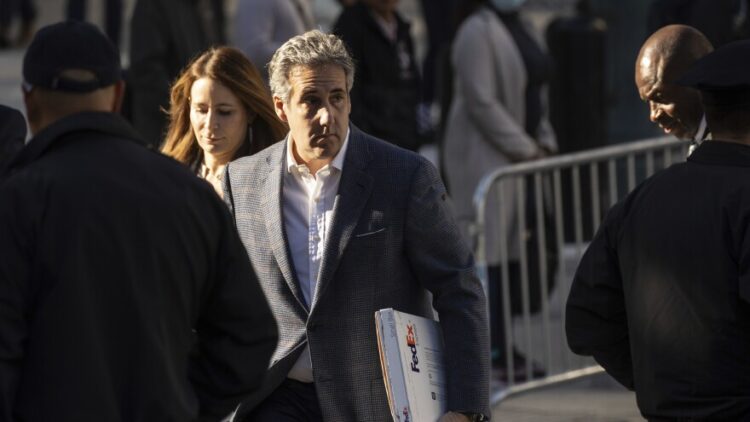By Isabelle Wilson-
New York, October 27, 2023 — In a riveting testimony, Michael Cohen, a former lawyer for Donald Trump, provided astonishing revelations regarding the ex-president’s alleged involvement in fraudulent property valuations, admitting that he was asked to exagerrate asset values.
Cohen’s testimony during a high-profile trial has implications for the charges against Trump and raises questions about the authenticity of his financial statements.
He admitted that his responsibility, along with that of former Trump Organization Chief Financial Officer Allen Weisselberg, “was to reverse engineer the very different asset classes, increase those assets in order to achieve the numbers” Trump had asked for.
Trump told reporters during the court break that he is “not worried” about Cohen’s testimony, arguing Cohen is not a credible witness due to his past lying under oath.
Cohen’s testimony implicated Trump directly in an elaborate scheme to inflate the value of his assets according to arbitrary figures set by the former president.
“I was tasked, by Mr. Trump, to increase the total assets based upon a number that he arbitrarily selected,” Cohen explained. “My responsibility, along with Allen Weisselberg predominantly, was to reverse-engineer the various different asset classes, increase those assets, in order to achieve the number that Mr. Trump had requested.”
The former lawyer revealed that the number to be reached was not determined by financial realities but was, in fact, “whatever number Mr. Trump told us to.”
Cohen’s revelations come in the context of a trial centered on Trump’s alleged falsification of his financial condition. The former president is facing accusations of manipulating financial statements to gain illicit advantages.
One key purpose behind this manipulation, according to Cohen, was to use these statements in acquisitions and insurance claims.
“It was to be used eventually for purposes of demonstrating net worth for acquisitions for insurance purposes,” Cohen stated. This manipulation was aimed at presenting Trump’s assets as having high values with low liabilities, thus obtaining favorable insurance premiums.
As Cohen offered his testimony, the trial displayed a copy of the statement of financial condition.
The admission by Cohen raises questions about the extent of Trump’s involvement in the property valuation scandal and the ramifications it may have for the ongoing legal proceedings against the former president.
Michael Cohen’s testimony provides a window into the intricacies of the case against Donald Trump and the extent to which he was personally involved in manipulating property valuations to his advantage.




